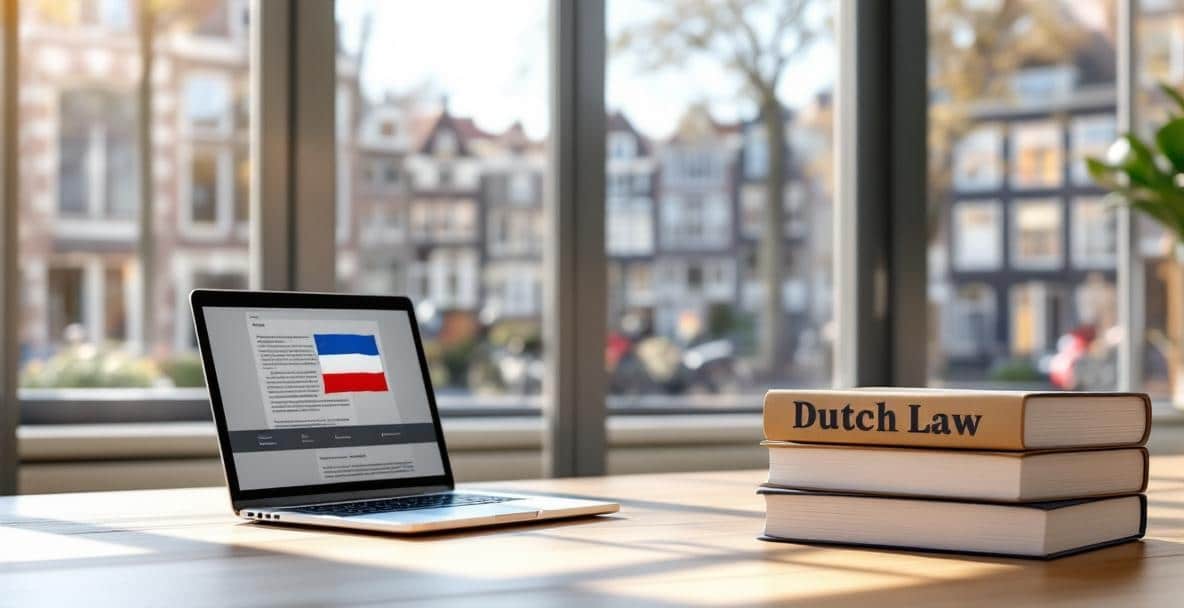Divorce hits hard, especially when you’re far from home. If you’re an expat in the Netherlands, you may soon face legal twists that could affect your money, family, and even your creative work. The Dutch legal system runs on different rules, and stepping into a court here can be more confusing than you expect. At Law & More B.V., we stand by your side to help you dodge expensive mistakes and keep your interests safe.
The Real Deal: Why Divorce in the Netherlands Can Be Tough for Expats

An Expat’s View
Divorce for expats in the Netherlands comes with obstacles that local residents rarely face. One big challenge is figuring out which country’s laws apply when you have ties to more than one nation. You might have wed in your home country but now live here, or your partner could still be abroad, which means different rules might try to take charge. Language and cultural gaps only add to the confusion. Understanding legal terms in your own language can be hard; trying to decode Dutch legal words after translation makes it even tougher. Many international clients have made choices they later regretted because they misunderstood the rules. Splitting assets that cross borders is no simple task either, and without special know-how, your divorce can drag on with unexpected outcomes.
Busting Some Myths
Many expats think they get to choose which country’s laws will set the course for their divorce. In reality, Dutch courts might take over if you meet certain residency rules, and that can be a real shock. It’s eye-opening to learn that even if you married abroad, your divorce may still have to follow Dutch law. Another common belief is that a prenuptial agreement from another country will automatically work here. Although Dutch judges often respect such agreements, they may be applied in ways that differ from your home country, and sometimes parts-especially regarding child care-might not count. The biggest surprise for some is thinking that the old joint property rules are history. The law changed in 2018 to only cover assets bought during the marriage, but if you married before then, you could still be under the old system. Getting clear legal insights is a must before you make any moves.
Figuring Out Dutch Divorce Laws: What Expats Should Know

Breaking Down the Legal Rules
In the Netherlands, you have two main ways to file for divorce: a joint petition or a single petition. When both parties agree on all the details, the joint route usually flows more smoothly. Even then, many expats overlook important details that could affect them for years to come. If you can’t agree, one partner can file on their own, and because the system doesn’t require proving fault, you only need to show that the marriage is beyond repair. This no-fault rule simplifies things but may hide complex issues lying ahead. One area that catches many off guard is how pensions are divided. The Dutch Pension Rights Equalization Act typically splits your retirement earnings right down the middle. For those who have worked in several countries, this calculation gets tricky fast, meaning you need reliable guidance.
How the Process Unfolds
Filing for divorce here starts by submitting the right petition to the court. When both partners agree, you can wrap things up in about three to four months. But if there are fights over property, childcare, or support payments, the process might stretch on for more than a year. You might even need to show up in court, especially if the case involves children, and that can be a real hassle if you’re living abroad. Although a good lawyer can handle many details, sometimes you still have to appear yourself. Once the court gives its decree, you must register it with the local civil registry (Burgerlijke Stand) within six months. This step is very important and often gets missed by expats who move soon after the divorce. If you skip it, the divorce might not officially count on Dutch records.
Keeping Your Creative Work Secure

Recognizing Your Intellectual Property
Divorce can leave your creative achievements feeling exposed, especially if you’ve built a portfolio that stretches over different borders. Your work might include patents, trademarks, copyrights, and trade secrets that hold significant financial and emotional value. If you are an entrepreneur or a creative professional, it is key to recognize all the pieces of your work. This means not only the big, registered items but also things like software code, business methods, customer lists, and unregistered works. Many expats in creative fields often miss out on parts of their intellectual property puzzle. When your business is involved, the challenge grows. If your company started during your marriage, it becomes even more difficult to decide what is yours and what was shared, especially if work that began before your marriage was later transformed into a commercial success.
Shielding Your Creative and Business Interests
Under the old rules, creative work was often seen as shared between partners unless a prenup said otherwise. Even after the 2018 change, creations made during the marriage might still be divided between you and your partner. Protecting your work means you need careful legal planning. We help many clients decide whether their creative assets should be treated under Dutch marital laws or fall under another country’s rules. Getting the jurisdiction right could change everything when it comes to dividing your property. Accurate valuations and solid licensing agreements play a big role too. Setting the right value ensures your creative work isn’t undervalued, and well-planned licensing may let you keep control while ensuring fairness for both sides. Legal experts at Law and More handle these tricky matters every day.
Money Matters: Secure Your Future

Dividing Your Assets
The Netherlands shifted its property rules in 2018 so that new marriages share assets differently. But if you married before that change, the old rule of total shared property might still apply. This means all assets, no matter when or how they were acquired, could be considered joint. When your assets span multiple countries – like a home abroad, international investments, or retirement funds from previous jobs – the situation becomes even more tangled. Dutch courts may claim authority over these assets, which might conflict with how another country handles them. New types of assets, like cryptocurrency, add another twist. These digital items are often overlooked during asset splits and can be hard to value correctly. Handling such complexities demands professional insights and proper planning.
Alimony and Child Support Details
Rules on spousal support, known as partneralimentatie, in the Netherlands differ quite a bit from elsewhere. Since 2020, the maximum period for spousal support is usually capped at five years, although exceptions exist for long marriages with older partners or young children. Child support, or kinderalimentatie, is required until the children turn 21, not 18 as in many other places. Determining the right amount involves looking at each parent’s income, the number of children, and how much care is needed. If your income varies or you deal with different currencies, the calculations can get really tricky. On top of that, Dutch tax laws have changed. Those paying spousal support no longer get a tax break, and the recipient does not declare the support as income. These changes often catch expats by surprise because they work differently from systems in other countries.
Wrapping Up: Plan Wisely for a Smoother Transition
What You Need to Remember
Divorce in the Netherlands, especially for expats, comes with its own special set of challenges. You have to deal with unique local laws on property, handle creative work carefully, and navigate a maze of international rules. Knowing these details from the start is crucial to protect your financial and personal interests.
What You Should Do Next
Get your paperwork in order as soon as possible. Gather all your financial records, property deeds, business valuations, and intellectual property registrations from both inside and outside the Netherlands. Make sure to have any prenup or marriage contracts at hand. It is always wise to speak with lawyers who know international divorce well. At Law & More B.V., our team speaks your language and understands the unique hurdles expats face during divorce. Need expert guidance navigating Dutch divorce laws as an expatriate? Our multilingual team is here to help you through these challenging times. Contact us today to schedule a consultation and ensure your interests are properly protected during this challenging transition.
